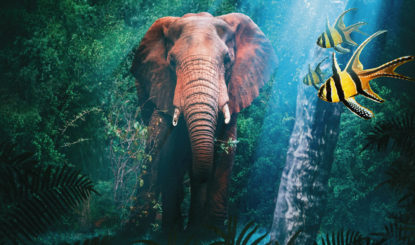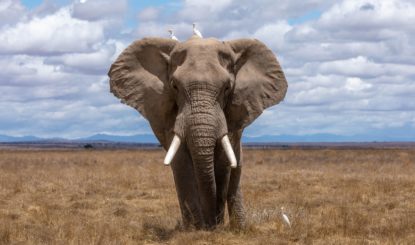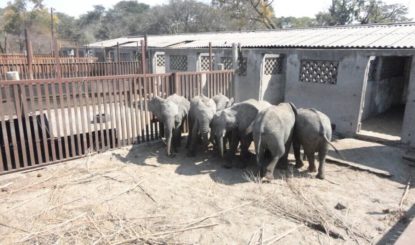CITES CoP19: A positive outcome for the conservation of endangered species
The 19th Conference of the Parties to the Convention on International Trade in Endangered Species of Wild Fauna and Flora (CITES coP19) ended on 25th November in Panama City. Over the course of 15 days of intense debates, the 170 member states present examined almost a hundred proposals aimed at improving the protection of species or opening up international trade in certain animals and plants. Fondation Franz Weber (FFW), an observer at CITES, welcomes the positive outcome for animal protection.
Moratorium on live elephant exports from Africa
Burkina Faso, Benin, Senegal, Togo and other members of the African Elephant Coalition (AEC), an alliance of more than 30 African states seeking better protection for the species, sought to halt all exports of live African elephants taken from the wild outside Africa – permanently.
The majority of AEC states want to ban wild elephant capture for export to zoos overseas, deemed harmful to the their welfare. Southern Africa states however seek to trade their elephants. In 2019, Zimbabwe sent more than 30 elephants, including many calves, to China, and in 2022, Namibia sent 22 to zoos in the United Arab Emirates.
The EU, in its role as “mediator”, proposed a “middle way” at CoP19: to postpone the issue until CoP20, in 2025, to facilitate a dialogue among the range states. The AEC, while sceptical, accepted, provided a moratorium on live elephant exports out of Africa is put in place during the dialogue process. The EU confirmed this means an end to exports from now to CoP20. According to Vera Weber, President of Fondation Franz Weber (FFW), which has supported the AEC for 15 years, “..this is an important victory for the Coalition, and above all a welcome reprive for elephants!”
No reopening of the ivory or elephant skin trade
AEC members also rejected efforts to reopen of trade in ivory or other elephant parts, including hides. It also succeed in calling for more data on the origins of illegal ivory seizures in order to bring Japan, the largest remaining domestic ivory market, to heel.
Glass frogs, pangolins, sharks and turtles – the winners at CoP19
The real winners at CoP19 were the glass frogs – a family of almost transparent frogs, popular in the pet industry. In the face of overwhemling support from Latin American and AEC countries and several Asian countries, the EU bowed to the pressure and supported the species’ listing in Appendix II of CITES. Fifty-four species of sharks and several dozen species of freshwater turtles also secured better protection at CoP19, thanks in particular to the pro-conservation position of AEC members and Latin American countries.
African countries and the EU now equal players
The EU votes as a block at CITES: this means that automatically, the position taken by the European Commission is worth 27 votes. A considerable weight, considering that important decisions are taken by a 2/3 majority of the Parties present. In short, the EU pretty much systematically defeats the proposals it decides to oppose, and passes those it supports.
This omnipotence, coupled with a certain intransigence on the part of the European Commission towards the countries of the African Elephant Coalition, has prompted the Coalition to express its dissatisfaction with the EU’s positions on several occasions. These are not generally favourable to maintaining global biodiversity; one particular example was its opposition to the proposal to list the hippopotamus in Appendix I of CITES.
In trying to have it both ways, and avoid offending any potential economic partners, the EU finds itself taking positions that run counter to its stated commitment to better protect the world’s wildlife species from trade. That said, the extraordinary strength of the AEC at this CoP, consistently supporting the conservation of species, has demonstrated the role it can play as an equal partner in discussions on the broader protection of biodiversity.



